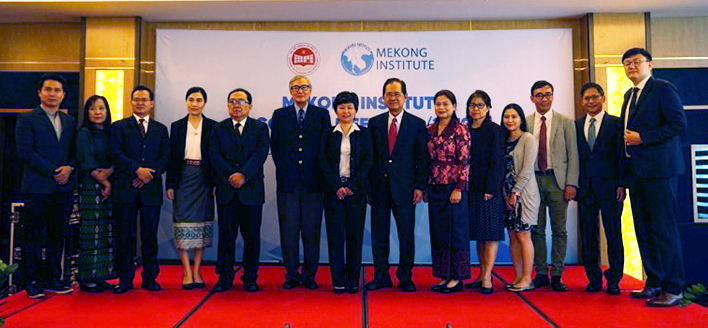
Mekong Institute’s Capacity Building Activities Continue to Expand Knowledge in the GMS
In 2019, the Mekong Institute conducted 112 capacity building activities that benefitted 3,270 participants from the Greater Mekong Subregion (GMS) countries in the areas of agricultural commercialization, trade and investment facilitation, and innovation technology and communication. Furthermore, Mekong Institute alumni held 155 trainings and workshops, expanding knowledge sharing to an additional 9,031 beneficiaries across Cambodia, People’s Republic of China (PRC), Lao People’s Democratic Republic (PDR), Myanmar, Thailand, and Vietnam.
Feedback from GMS country representatives highlights how Mekong Institute investments helped deepen connectivity, collaboration, and community in the region:
- Chinese professionals who completed the Mekong Institute Young Scholars Program gave the program favorable responses, according to Mr. Yang Shaocheng, Chief of the Regional Cooperation Office representing the Foreign Affairs Office of the People’s Government of Yunnan Province.
- The Regional and Local Economic Development – East West Economic Corridor project contributed to national peace building by enhancing economic opportunities and cross-border facilitation among farmers, traders, and business groups in ethnic minority areas in the country, shared Mr. Than Aung Kyaw, Director General of the Foreign Economic Relations Department under Myanmar’s Ministry of Investment and Foreign Economic Relations.
In 2020, the Mekong Institute plans to roll out 22 programs and projects estimated to benefit 1,157 participants from Cambodia, PRC, Lao PDR, Myanmar, Thailand and Vietnam. It is also set to formulate its 2021–2025 Strategic Plan, and further enhance its institutional and financial management to provide stronger capacity building support in the region.
At the Mekong Institute Governing Board Meeting, held in Da Nang, Vietnam on 17-18 December 2019, GMS member countries and Mekong Institute development partners reaffirmed their continuous support for the Mekong Institute’s work in human resource development and capacity building. GMS member countries were represented by high-level officials. Development partners included the New Zealand Aid Programme, Asian Development Bank, Hue University, and Khon Kaen University.
